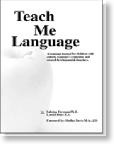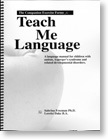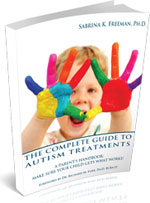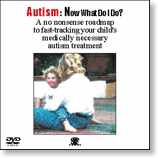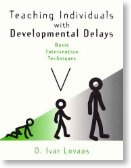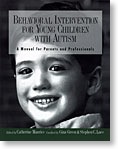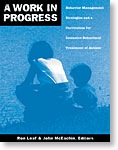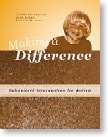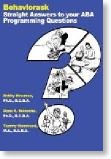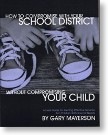Your Child’s Autism is Not a Theory!
It also doesn’t help that this psychologist’s case dredges up the “lack of love” angle as a cause of autism (which reminds us all of the infamous Refrigerator Mother Theory, the less well-known Detached Father Theory and finally, the sophisticated Assortative Mating Theory). Despite this debacle, which was sufficiently controversial that the Irish Examiner actually pulled the article, a couple of points do need to be made.
Autism is definitely real; however, the causes of autism are not yet well known. Much good research is being conducted and many theories as to the causes of autism are being researched. Unfortunately, we do not yet know how to measure autism biologically. We can neither count blood cells nor measure proteins to determine whether or not a child has autism. The diagnoses are always behavioral, which is not adequate, but that’s all we currently have. One day, though, we will actually know the causes of autism. In the same way we know “fever” is a symptom of underlying disease rather than a diagnosis on its own, autism may similarly be a symptom of one or more conditions.
For parents of children with autism, this difference may be no more than semantics, despite the fact that researchers will be gratified after years of research. The term autism may eventually come to describe a group of symptoms, but when your child needs help, does it really matter? Let the Irish Examiner experience be a cautionary tale for the next autism expert who wades into autism’s very deep waters.
Chalk one up for the good guys!
The Internet is abuzz with the latest film on autism to come out of France. This film tips the “pomme” cart, and I say “Bravo”! The film is called: “The Wall; Psychoanalysis put to the test for autism.” It is a must watch film. I suggest you do it quickly before it’s forcibly removed from the Internet. This film has been banned by a French court, hard as that may be for a non-European audience to comprehend. The filmmaker is appealing the ruling.
Decades after the debunking of the theory that mothers cause their child’s autism, first posited by Bruno Bettleheim and embraced by the field of psychoanalysis, the insular French psychiatric community is still flogging the dead horse, with an incomprehensible disregard to the scientific advances that have been made in the rest of the world over the past 60 years. Quantitative data collection seems to be utterly irrelevant for these folks; however, with the growing popularity and reach of the Internet, parents in France have learned the basics. They’ve got us beat when it comes to food, perfume, fashion and pretty much all the finer things in life, but when it comes to autism treatment, well… not so much!
Francophone parents with autism have been historically so isolated in terms of up-to-date materials that I actually had my book, Teach Me Language, translated into French as Apprends-moi le langage, because I had so many requests from French speaking parents and speech language pathologists. I also felt that it was a tremendous injustice that children in the Francophone world had been left to the mercy of the psychoanalysts for so-called “treatment.”
I was delighted to read about a film comparing the backward, flat-earth type, psycho-analytic approach to autism intervention with the science-based approaches we’re accustomed to in the U.S. and Canada. The courage of this documentary filmmaker, Sophie Robert, is remarkable. She is standing up to the powerful French psycho-analytic community. The psychoanalysts were given almost the entire film to describe their dubious theories, and now three of them have the gall to sue the film maker because they claim that they have been misrepresented!
This is a real test for France: is the nation truly a republic with an independent judiciary that will consider science and data, or will they be intimidated by the powerful psycho-analytic traditionalists who’ve had free reign over children with autism since the term autism was coined. Filmmaker Sophie Robert has done something important for the community of parents of children with autism worldwide. We need to support her.
Dad needs a break, not sensitivity training
Research indicates that often it is the mother who is the first to either work fewer hours or leave her career all together in order to take care of the child with autism. Consequently, there is often only one income remaining to support the family. One needs to remember that when there is a child with autism in the home, life can become a chronic crisis (yes, there is such a thing). Parents’ sleep is often radically disrupted -- for years! -- yet society still expects parents of children with autism to perform normally at work every day and function optimally like everyone else.
They don’t sell Superman Pills at the local supermarket!
The last thing for which many fathers of children with autism have energy, is to “interact,” particularly with a child who does not naturally interact back with them. Where autism is concerned, the deep dysfunction of the domicile is no small matter; professionals should be content that the family unit remains functioning and intact! In its proper context, the notion of insufficient “engagement” on the part of the father is thoroughly trivial. Moreover, let’s not confuse cause with effect i.e., does a child with autism improve when a father becomes more engaged, or will a father become more engaged when a child’s autism starts to improve with effective, science-based treatment!
Here’s a proposed recipe for the film makers to help fathers come to terms with having a child with autism:
1) Show fathers the way to get their child access to a high quality, early intensive behavioral treatment program
2) Demonstrate the progress the child makes in an effective treatment program.
3) Provide the father with behavioral techniques required to allow them to engage meaningfully with their children
4) Tell them to go out there and bring home lots of money, since that is going to ultimately help their child get what’s required for health and well-being
5) Suggest that dad arrange a weekly night out for dinner alone with mom, where autism will be strictly forbidden as a topic of conversation
6) Advise them not to inherit tomorrow’s problems, since we do not know the child’s future until their full potential is realized
7) Get them involved with groups that advocate for the rights of their child. They will be able to work towards fixing the issue with the right group and, if necessary, the right lawyer.
It’s remarkable how easy it is for a father to come to terms with a child’s autism when the child is in an effective treatment program and he sees significant results! Let’s get more engagement with that idea.


